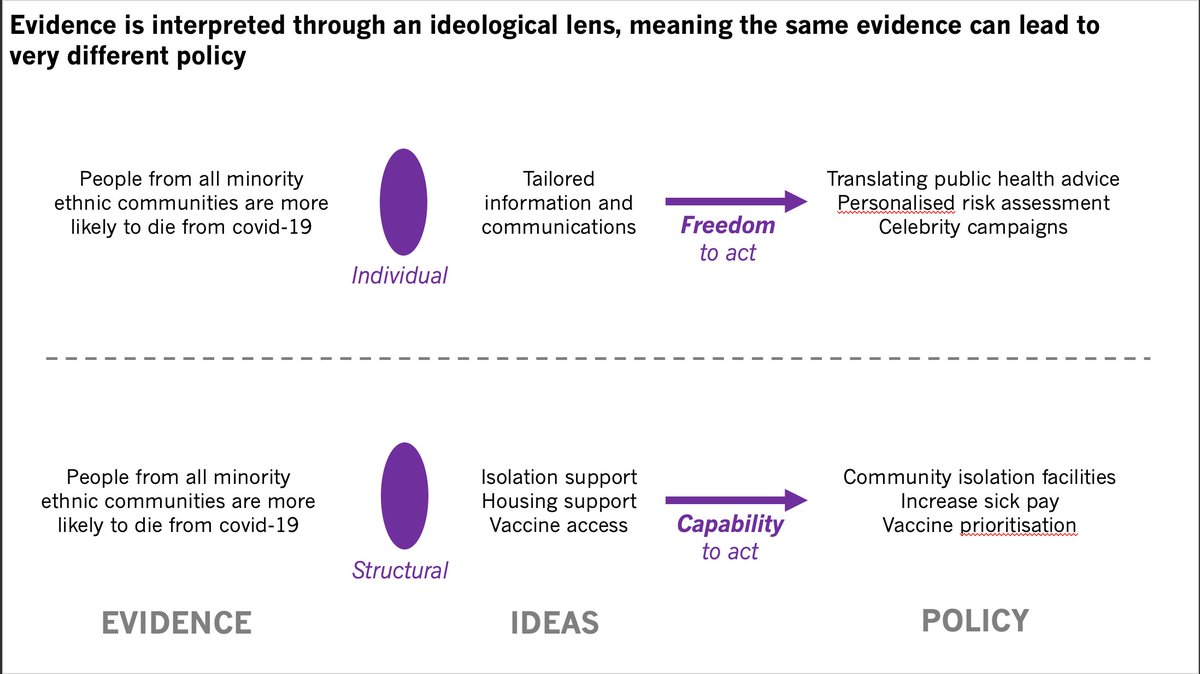
Some thoughts on the #SewellReport reflecting broadly but using health an example
Throughout the report, the role of racism is 'explained away'. For example, Covid-19 disparities are merely about where you live with, what job you do and how poor you are

Throughout the report, the role of racism is 'explained away'. For example, Covid-19 disparities are merely about where you live with, what job you do and how poor you are


Ignoring the elephant in the room that shapes each of those factors: racism
That's despite study after study demonstrating how structural and institutional racism determines where you live, what job you do and how poor you are
That's despite study after study demonstrating how structural and institutional racism determines where you live, what job you do and how poor you are

But how many times can you respond "look at all the evidence"?
On one hand, it leads to a distracting debate
On the other, it's a pointless battle if a single positive outcome for a particular ethnic group is apparent proof that bigger-than-the-individual racism cannot exist
On one hand, it leads to a distracting debate
On the other, it's a pointless battle if a single positive outcome for a particular ethnic group is apparent proof that bigger-than-the-individual racism cannot exist

Instead maybe it is better to look at *how* evidence is used, rather than *what* evidence is used
Some thoughts on how ideology shaped the conclusions drawn...
Some thoughts on how ideology shaped the conclusions drawn...

What stands out is just how central, and explicit, "agency" is in the Sewell report. There's even a whole set of recommendations around it 







The problem with that is it asks us to believe in a world where individuals are in complete control of their lives, unaffected by social/economic/political determinants, able to realise outcomes simply by willing them strongly enough
This "everyone has an equal ability to realise their full potential if they want to" ideology is, by definition, at odds with recognising any form of racism or oppression that is bigger than the individual
And it means the main aim of the recommendations in the report are to increase individual social mobility
The goal is to grow yourself out of your community, not rise up with it. Those who don't simply deserve it...
The goal is to grow yourself out of your community, not rise up with it. Those who don't simply deserve it...
FYI the slides above are from a talk I gave at the Stuart Hall Foundation & @EthnicityUK conference a few weeks ago
That they are so applicable today shows just how unsurprising the Sewell report turned out to be
That they are so applicable today shows just how unsurprising the Sewell report turned out to be
• • •
Missing some Tweet in this thread? You can try to
force a refresh




